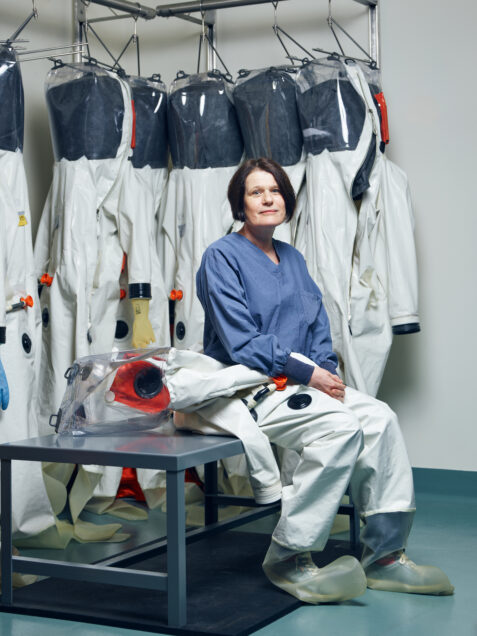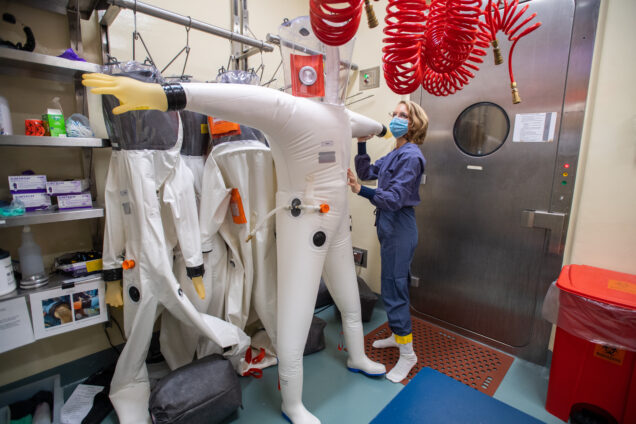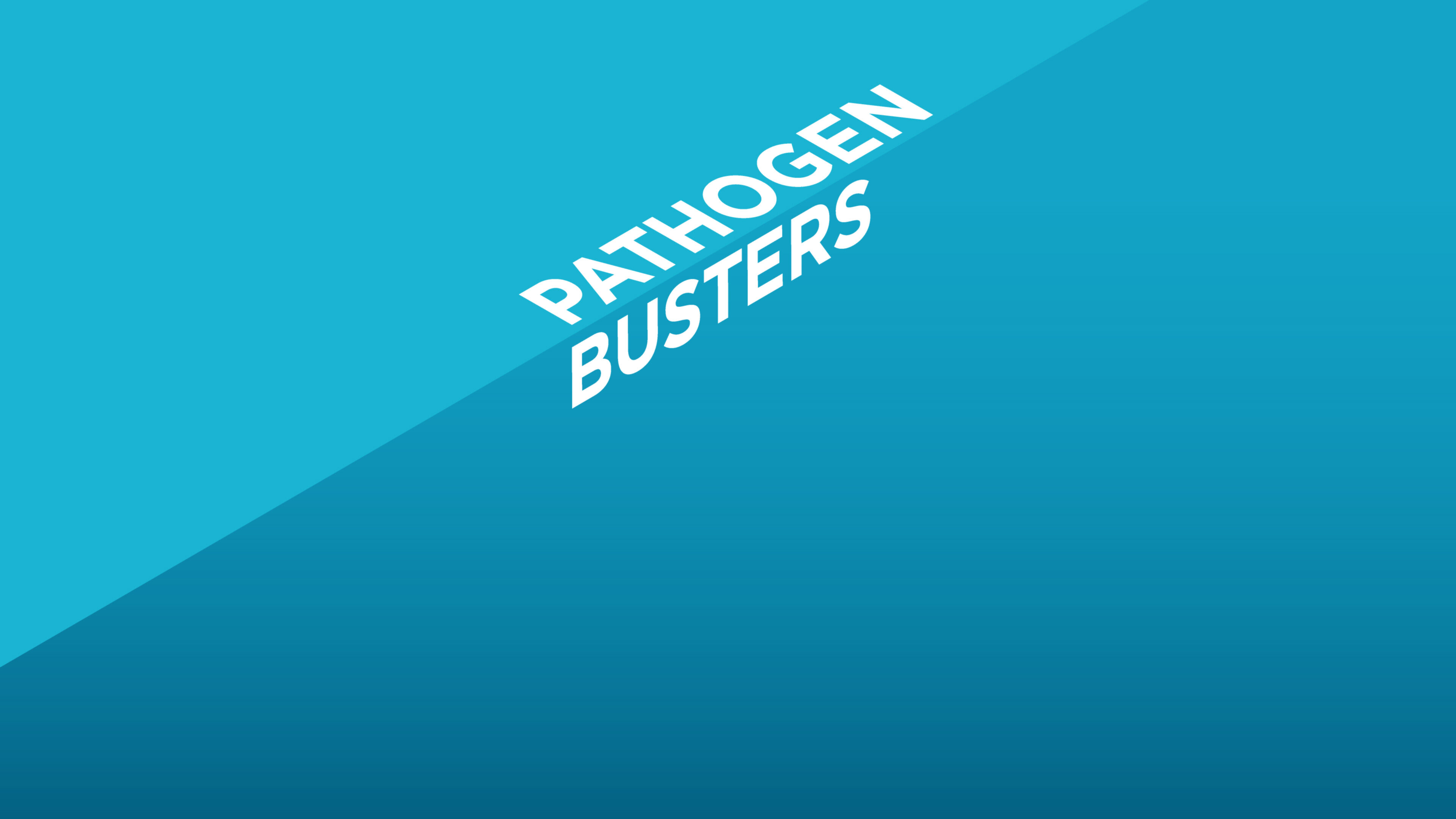Pathogen Busters

HOW TO GO ANTIVIRAL
The next pandemic could be lurking, ready to strike, and Boston University researchers aren’t waiting to find out.
In early 2023, six of our scientists joined a $100 million effort to advance the understanding of dangerous pathogens—and help spur new ways to defeat or at least contain them.
The HOWARD HUGHES MEDICAL INSTITUTE’S (HHMI) EMERGING PATHOGENS INITIATIVE is pulling in 70 scientists from 29 organizations who will be part of teams working on the next generation of RNA-based antiviral therapies. BU’s share of the funding will be $10.75 MILLION.
Among those contributing to the HHMI initiative is ELKE MÜHLBERGER, director of integrated science services at BU’s NATIONAL EMERGING INFECTIOUS DISEASES LABORATORIES (NEIDL). NEIDL is a state-of-the-art research facility that focuses on infectious diseases that are—or can become—public health threats. Mühlberger is a professor of microbiology and an expert on highly pathogenic viruses like Ebola, Marburg, and SARS-CoV-2. She recently started investigating other viruses of concern, including Nipah—a bat-borne disease with the potential to infect humans—that is high on the World Health Organization’s priority list for research.
Mühlberger is teaming up with BU colleagues, biochemist DANIEL CIFUENTES and microbiologist ANTHONY GRIFFITHS. Mühlberger says, “The goal is to come up with mechanisms and strategies, to use the knowledge that we gain through this project to block these viruses, to find antiviral countermeasures.”

The goal is to come up with mechanisms and strategies…to block these viruses, to find antiviral countermeasures.
— Elke Mühlberger, Director of Integrated Science Services at NEIDL
The other EMERGING PATHOGENS INITIATIVE team featuring BU researchers includes RUSLAN AFASIZHEV, INNA AFASIZHEVA, and JOHN SAMUELSON, all BU Henry M. Goldman School of Dental Medicine molecular and cell biology faculty members. They are working with scientists from the Broad Institute, Harvard T.H. Chan School of Public Health, and Massachusetts General Hospital to decode key proteins—known as mitochondrial proteomes—in six disease-causing parasites.
Afasizhev says that the work could also lay the foundation for developing a new generation of drugs targeting historically neglected diseases. “We aim to build highly accurate and comprehensive mitochondrial proteomes of parasites that cause human diseases in some of the most disadvantaged countries in the world.”
